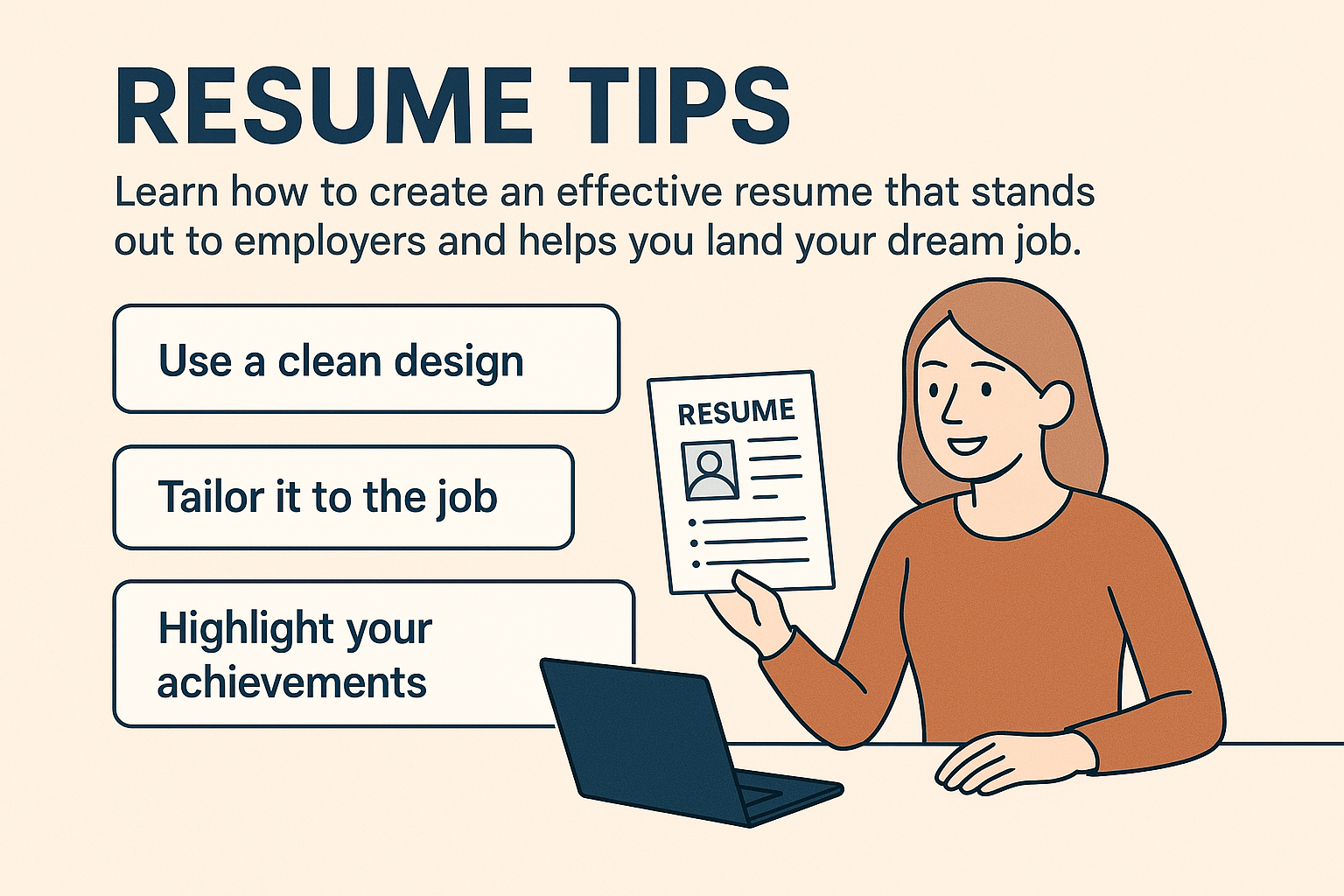Resume Tips
Learn how to create an effective resume that stands out to employers and helps you land your dream job.


Resume Tips
Creating an effective resume is crucial for making a strong first impression on potential employers. Here are some essential tips to help your resume stand out.
Keep it Concise
Most recruiters spend less than 10 seconds scanning a resume initially, so brevity is crucial. Limit your document to one or two pages maximum—anything longer risks being skimmed or overlooked entirely.
Replace dense paragraphs with concise bullet points that allow for quick scanning and immediate comprehension. Focus your content on accomplishments and experiences most relevant to the position you're seeking, and ruthlessly eliminate information that doesn't directly support your candidacy.
Tailor for Each Application
A generic, one-size-fits-all resume rarely impresses hiring managers. Take the time to customize your document for each position by carefully analyzing the job description and incorporating relevant keywords throughout your resume. This approach not only helps you pass through applicant tracking systems but also immediately demonstrates your fit for the role.
Strategically highlight skills and experiences that align with what the employer is seeking. Adapt your professional summary for each application to position yourself as the ideal candidate who understands the specific needs of the organization.
Structure Matters
Organize your resume with a clear, logical structure that guides the reader through your professional story. Your contact information should be prominently displayed at the top, making it easy for recruiters to reach you. Follow this with a compelling professional summary that captures your value proposition in just two or three impactful sentences.
Present your work experience in reverse chronological order, focusing on achievements rather than mere responsibilities. Include a skills section that balances technical capabilities with essential soft skills relevant to the position. Conclude with your educational background, featuring degrees, certifications, and coursework that support your career objectives.
Quantify Achievements
Numbers speak louder than words on a resume. Transform vague statements into powerful demonstrations of your impact by incorporating specific metrics and results. Highlighting that you "increased sales by 35% in six months" provides concrete evidence of your contributions that hiring managers can immediately grasp.
Share the scope of your leadership by mentioning team sizes you've managed or projects you've overseen. Whenever possible, include percentages, dollar amounts, or other measurable outcomes that illustrate your effectiveness, such as "reduced customer complaints by 40%" or "implemented process improvements that saved $250,000 annually."
Design Considerations
The visual presentation of your resume creates an immediate impression before a single word is read. Select a clean, professional font that prioritizes readability over stylistic flourishes. Maintain consistent formatting throughout the document, including uniform heading styles, bullet points, and spacing.
Utilize white space strategically to prevent visual clutter and guide the reader's eye to important information. Consider using industry-appropriate templates as starting points, but customize them enough to avoid looking identical to other candidates. For creative fields, thoughtful design choices can demonstrate your aesthetic sensibilities, while traditional industries typically prefer more conservative layouts.
Proofread Thoroughly
Even the most qualified candidates can be eliminated due to careless errors on their resumes. Always run your document through spelling and grammar checking tools as a first line of defense against obvious mistakes.
Try the backward reading technique—reviewing your resume from bottom to top, word by word—to catch typos that your brain might otherwise autocorrect when reading normally. Finally, enlist a trusted friend or colleague to provide a fresh perspective, as they may spot issues or opportunities for improvement that you've overlooked.
Remember, your resume is your marketing document—make every word count and ensure it showcases your strongest qualifications for the job you want.